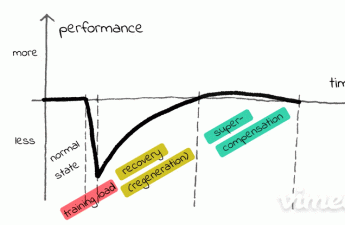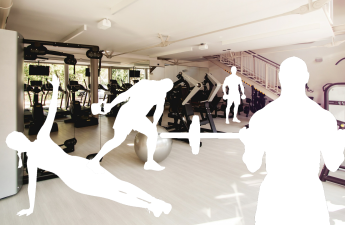How scientifically one should approach the topic of muscle building – and at what point one simply lets science be science.
Regeneration-based build-up training: All very academic?
Last year I was very much involved with the topic of regeneration and supercompensation. The reason for this? My diploma thesis with the title “Optimization of muscle building under consideration of regeneration and supercompensation”. In the process, I very quickly realized that physical changes are a very complex subject area. In fact, not only physiological but also biochemical knowledge would be beneficial for a comprehensive understanding.
So I researched and read – from metabolic processes to gene sequences and creatine phosphate stores. And at some point you start asking yourself: Do I really need all this? Probably for writing a diploma thesis. For a muscle building training that is fun, probably not.
You can fly blind, right?
But of course there are differences here too. Some people have an exceptionally good feeling for their own bodies. They rely on their instinct and achieve remarkable results with their “training by feel”. Others, however, start by “thinking the whole thing through”. Isn’t it best to train every day? On the other hand, what about muscle regeneration then? But it can’t be that three training sessions per week are enough for my muscles to grow … can it? And with all these questions and ambiguities, they stagger from one good advisor to the next, only to come up against new doubts again and again in the end.
The central task: Find the ideal track for your situation!
And this is exactly the point where, in my opinion, you have to be very careful. In the end, too much perfectionism in training not only damages your motivation, but often leads to you stopping training altogether. Because you can’t do it optimally anyway. And because you are completely overwhelmed by all the information that comes your way from bodybuilding blogs, training podcasts and other fitness media (not least because these tips often tend to contradict each other).
So what should one do? Probably: Find the right balance. It is of course quite helpful to base your own approach on at least a few scientifically proven facts. But if you degenerate in such a way that you don’t take another step without thinking about 100 possible consequences or querying 25 body sensors, you shouldn’t do it.
Who decides? Don’t let the thinking be taken away from you!
You feel fit for training and are really motivated to train your legs, although according to the regeneration plan they would not be back until tomorrow? Then go to the leg training and have fun! You have sore muscles and feel listless, but are afraid of missing the super compensation phase? (if it exists … see link below: “Supercompensation: Just a fake?”) Then make yourself comfortable on the couch with a cup of tea and postpone your training until tomorrow.
Because from time to time you should also rely on your body feeling.



